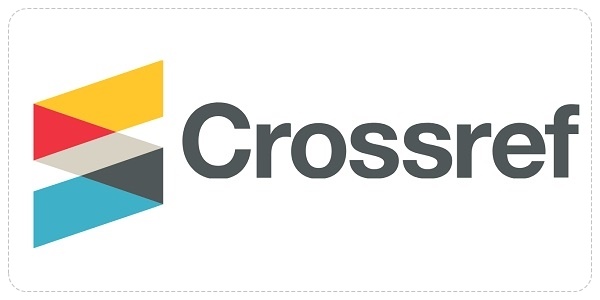Self-Regulated Learning in Online Mathematics Learning during the Covid-19 Pandemic: A Meta-Analysis
Abstract
Keywords
Full Text:
PDFReferences
Adam, N. L., Alzahri, F. B., Cik Soh, S., Abu Bakar, N., & Mohamad Kamal, N. A. (2017). Self-regulated learning and online learning: a systematic review. In Advances in Visual Informatics: 5th International Visual Informatics Conference, IVIC 2017, Bangi, Malaysia, November 28–30, 2017, Proceedings 5 (pp. 143-154). Springer International Publishing.
Ahmad, A., Nuzula, F., & Makky, K. (2020). Efektivitas pembelajaran daring dengan menggunakan google classroom pada mata pelajaran matematika di madrasah aliyah darul falah Batu Jangkih. El-Hikam, 13(1), 66-82.
Alfirahmadita, J., & Maarif, S. (2020). Peran bahasa dalam komunikasi pembelajaran matematika secara online pada masa pandemi Covid-19. Jurnal Pendidikan Matematika. 8(3), 153-167.
Alten, David C. D., Chris Phielix, Jeroen Janssen, Janssen, J., & Kester, L. (2020). Self-regulated learning support in flipped learning videos enhances learning outcomes. Computers and Education. 158 (2020), 1-16.
Anas, S. (2008). Pengantar Statistik Pendidikan. Jakarta: Raja Grafindo Persada.
Badjeber, R. (2020). Kemandirian belajar mahasiswa tadris matematika ftik iain palu selama masa pembelajaran daring. Koordinat Jurnal MIPA. 1(1), 1-9.
Bandura, Albert. (1991). Social cognitive theory of self-regulation. Organizational Behavior and Human Decision Processes.
Cai, R., Wang, Q., Xu, J., & Zhou, L. (2020). Effectiveness of students’ self-regulated learning during the COVID-19 pandemic. Sci Insigt, 34(1), 175-182.
Carter Jr, R. A., Rice, M., Yang, S., & Jackson, H. A. (2020). Self-regulated learning in online learning environments: strategies for remote learning. Information and Learning Sciences, 121(5/6), 321-329.
Chen, C. S. (2002). Self-regulated learning strategies and achievement in an introduction to information systems course. Information technology, learning, and performance journal, 20(1), 11-25.
Cho, M. H., & Heron, M. L. (2015). Self-regulated learning: The role of motivation, emotion, and use of learning strategies in students’ learning experiences in a self-paced online mathematics course. Distance Education, 36(1), 80-99.
Cleary, T. J., Slemp, J., & Pawlo, E. R. (2021). Linking student self‐regulated learning profiles to achievement and engagement in mathematics. Psychology in the Schools, 58(3), 443-457.
Djamilah, S., & Lazwardi, A. (2020). Pembelajaran Daring Struktur Aljabar Dan Analisis Real Pada Masa Pandemi. Jurnal Riset Teknologi dan Inovasi Pendidikan (JARTIKA), 3(2), 403-409.
Dong, C., Cao, S., & Li, H. (2020). Young children’s online learning during COVID-19 pandemic: Chinese parents’ beliefs and attitudes. Children and youth services review, 118, 105440.
Fasikhah, S. S., & Fatimah, S. (2013). Self-regulated learning (SRL) dalam meningkatkan prestasi akademik pada mahasiswa. Jurnal ilmiah psikologi terapan, 1(1), 145-155.
Fauzi, A., & Widjajanti, D. B. (2018, September). Self-regulated learning: the effect on student’s mathematics achievement. In Journal of Physics: Conference Series (Vol. 1097, No. 1, p. 012139). IOP Publishing.
Febrian, F., Astuti, P., & Antika, R. (2020). Pelatihan Online Penggunaan Geometry Toolbox untuk Mendukung Pembelajaran Jarak Jauh pada Masa Pandemi. J-ABDIPAMAS (Jurnal Pengabdian Kepada Masyarakat), 4(2), 9-20.
Fitriani, W., Haryanto, H., & Atmojo, S. E. (2020). Motivasi berprestasi dan kemandirian belajar mahasiswa saat pembelajaran daring. Jurnal Pendidikan: Teori, Penelitian, Dan Pengembangan, 5(6), 828-834.
Graham, S., & Harris, K. R. (1993). Self-regulated strategy development: Helping students with learning problems develop as writers. The Elementary School Journal, 94(2), 169-181.
Gusty, S., Nurmiati, N., Muliana, M., Sulaiman, O. K., Ginantra, N. L. W. S. R., Manuhutu, M. A., ... & Warella, S. Y. (2020). Belajar mandiri: Pembelajaran daring di tengah pandemi Covid-19. Medan: Yayasan Kita Menulis.
Handayani, S., & Wati, A. P. (2020). Peningkatan Kemandirian Belajar Mahasiswa di Masa Pandemi Covid-19 melalui Penerapan Blended learning pada Mata Kuliah Evaluasi Proses dan Hasil Belajar di Universitas Negeri Malang. Jurnal Pendidikan Ekonomi, 13(2), 152-164.
Harahap, A. C. P. (2020). Covid 19: Self regulated learning mahasiswa. Al-Irsyad: Jurnal Pendidikan Dan Konseling, 10(1), 36-42.
Hermawantie, F. C., Sutisnawati, A., & Maula, L. H. (2020). Analisis Proses Pembelajaran Matematika Berbasis Daring Pada Siswa Kelas Tinggi Sekolah Dasar. DIKDAS MATAPPA: Jurnal Ilmu Pendidikan Dasar, 3(2).
Hidayat, D. R., Rohaya, A., Nadine, F., & Ramadhan, H. (2020). Kemandirian belajar peserta didik dalam pembelajaran daring pada masa pandemi COVID-19. Perspektif Ilmu Pendidikan, 34(2), 147-154.
Hignasari, L. V., & Supriadi, M. (2020). Pengembangan e-learning dengan metode self assessment untuk meningkatkan hasil belajar matematika mahasiswa universitas Mahendradatta. Jurnal Kependidikan: Jurnal Hasil Penelitian Dan Kajian Kepustakaan Di Bidang Pendidikan, Pengajaran Dan Pembelajaran, 6(2), 206-219.
Hodiyanto, H., & Firdaus, M. (2020). The self regulated learning, habit of mind, and creativity as high order thinking skills predictors. AKSIOMA: Jurnal Program Studi Pendidikan Matematika, 9(1), 21-30.
Hudaifah, F. (2020). Peran self regulated learning di era pandemi covid-19. Biormatika: Jurnal ilmiah fakultas keguruan dan ilmu pendidikan, 6(2), 76-84.
Hutagaol, A. S. R., & Sopia, N. (2020). Kemampuan literasi matematika mahasiswa dalam model Problem Based Learning melalui daring. VOX EDUKASI: Jurnal Ilmiah Ilmu Pendidikan, 11(2), 86-96.
Hutauruk, A. J. (2020). Kendala pembelajaran daring selama masa pandemi di kalangan mahasiswa pendidikan matematika: Kajian kualiatatif deskriptif. Sepren, 2(1), 45-45.
Indira I., & Muslihati, M. (2020, September). Efektifitas Pelatihan Self Regulated Learning dalam Pembelajaran Daring untuk Meningkatkan Ketuntasan Belajar Siswa di Masa Pandemi Covid-19. In Prosiding Seminar Bimbingan Dan Konseling (pp. 16-22).
Johan, R. C., Sutisna, M. R., Rullyana, G., & Ardiansah, A. (2020). Developing online learning communities. In Borderless Education as a Challenge in the 5.0 Society (pp. 145-153). CRC Press.
KEMDIKBUD. (2020). Surat edaran Mendikbud No 4 tahun 2020 tentang pelaksanaan kebijakan pendidikan dalam masa darurat penyebaran Corona Virus Disease (Covid-19) https://kusdiklat.kemdikbud.go.Id/
Koroh, T. D. (2020). Respon Mahasiswa Terhadap Pembelajaran Daring dan Kemandirian Belajar Mahasiswa Selama Pandemi Covid-19: Student Response To The Online Learning And Self Learning During Pandemic Covid-19. Widyadewata, 3(1), 54-59.
Kusmaharti, D., & Yustitia, V. (2020). Efektivitas online learning terhadap kemampuan pemecahan masalah matematika mahasiswa. Journal of Medives: Journal of Mathematics Education IKIP Veteran Semarang, 4(2), 311-318.
Kusuma, D. A. (2020). Dampak penerapan pembelajaran daring terhadap kemandirian belajar (self-regulated learning) mahasiswa pada mata kuliah geometri selama pembelajaran jarak jauh di masa pandemi covid-19. Teorema: Teori dan Riset Matematika, 5(2), 169-175.
Kusumaningrum, B., & Wijayanto, Z. (2020). Apakah pembelajaran matematika secara daring efektif?(studi kasus pada pembelajaran selama masa pandemi covid-19). Kreano, Jurnal Matematika Kreatif-Inovatif, 11(2), 136-142.
Lai, C. L., & Hwang, G. J. (2016). A self-regulated flipped classroom approach to improving students’ learning performance in a mathematics course. Computers & Education, 100, 126-140.
Lestari, W. D., Aisah, L. S., & Nurafifah, L. (2020, October). What is the relationship between self-regulated learning and students’ mathematical understanding in online lectures during the covid-19 pandemic?. In Journal of Physics: Conference Series (Vol. 1657, No. 1, p. 012065). IOP Publishing.
Miguel-Revilla, D., Martínez-Ferreira, J. M., & Sánchez-Agustí, M. (2020). Assessing the digital competence of educators in social studies: An analysis in initial teacher training using the TPACK-21 model. Australasian Journal of Educational Technology, 36(2), 1-12.
Muhammad, I. (2020). Pengaruh perkuliahan daring terhadap kemandirian belajar mahasiswa prodi Pendidikan Matematika Universitas Malikussaleh. Jurnal Ilmiah Pendidikan Matematika Al Qalasadi, 4(1), 24-30.
Mulyana, D., & Taufan, M. (2020). Pengembangan media pembelajaran online terhadap kemampuan koneksi matematis mahasiswa. Delta: jurnal ilmiah pendidikan matematika, 8(2), 239-248.
Mustakim, M. (2020). Efektivitas pembelajaran daring menggunakan media online selama pandemi covid-19 pada mata pelajaran matematika. Al Asma: Journal of Islamic Education, 2(1), 1-12.
Nuraeni, D., Uswatun, D. A., & Nurasiah, I. (2020). Analisis pemahaman kognitif matematika materi sudut menggunakan video pembelajaran matematika sistem daring di kelas iv b sdn Pintukisi. Pendas: Jurnal Ilmiah Pendidikan Dasar, 5(1), 61-75.
Nurani, N. I., Uswatun, D. A., & Maula, L. H. (2020). Analisis Proses Pembelajaran Matematika Berbasis Daring Menggunakan Aplikasi Google Classroom Pada Masa Pandemi Covid-19. Jurnal PGSD, 6(1), 50-56.
Pertiwi, C. M., Rohaeti, E. E., & Hidayat, W. (2021). The students'mathematical problem-solving abilities, self-regulated learning, and vba microsoft word in new normal: a development of teaching materials. Infinity Journal, 10(1), 17-30.
Peters, M. A., Wang, H., Ogunniran, M. O., Huang, Y., Green, B., Chunga, J. O., ... & Hayes, S. (2020). China’s internationalized higher education during Covid-19: Collective student autoethnography. Postdigital science and education, 2, 968-988.
Putra, A., & Roza, M. (2020). Systematic Literatur Review: Adversity Quotient dan Self Efficacy dalam Pembelajaran Matematika. At-Tarbawi: Jurnal Pendidikan, Sosial dan Kebudayaan, 7(2), 184-201.
Rohaeti, E. E., Bernard, M., & Primandhika, R. B. (2019). Developing interactive learning media for school level mathematics through open-ended approach aided by visual basic application for excel. Journal on Mathematics Education, 10(1), 59-68.
Silvana, H., Rullyana, G., Agustina, S., & Ardiansah, A. (2021). E-Libwork Web Portal Design As A Digital Learning Resources. Edulib, 11(1), 65-75.
Singh, V., & Thurman, A. (2019). How many ways can we define online learning? A systematic literature review of definitions of online learning (1988-2018). American Journal of Distance Education, 33(4), 289-306.
Sulisworo, D., Fatimah, N., & Sunaryati, S. S. (2020). A Quick Study on SRL Profiles of Online Learning Participants during the Anticipation of the Spread of COVID-19.
International Journal of Evaluation and Research in Education, 9(3), 723-730.
Suryani, K., & Fauzan, A. (2020). Self Regulated Learning of Mathematics Education Students of Bung Hatta University. In Journal of Physics: Conference Series (Vol. 1429, No. 1, p. 012003). IOP Publishing.
Tzu-Chi, Y. (2020, July). Impacts of observational learning and self-regulated learning mechanisms on online learning performance: a case study on high school mathematics course. In 2020 IEEE 20th international conference on advanced learning technologies (ICALT) (pp. 194-197). IEEE.
UNESCO. (2020). COVID-19 Educational Disruption and Response. UNESCO. https://www.unesco.org/en/articles/covid-19-educational-disruption-and-response
Utami, Y. P., & Cahyono, D. A. D. (2020). Study at home: analisis kesulitan belajar matematika pada proses pembelajaran daring. Jurnal Ilmiah Matematika Realistik, 1(1), 20-26.
Viberg, O., Khalil, M., & Baars, M. (2020, March). Self-regulated learning and learning analytics in online learning environments: A review of empirical research. In Proceedings of the tenth international conference on learning analytics & knowledge (pp. 524-533).
Wijaya, T. T., Ying, Z., & Suan, L. (2020). Gender and self regulated learning during COVID-19 Pandemic in Indonesia. Jurnal Basicedu, 4(3), 725-732.
Yuliati, Y., & Saputra, D. S. (2020). Membangun kemandirian belajar mahasiswa melalui Blended Learning di masa pandemi covid-19. Jurnal Elementaria Edukasia, 3(1), 142-149.
DOI: https://doi.org/10.17509/pdgia.v20i1.41952
Refbacks
INDEXED BY

This work is licensed under a Creative Commons Attribution-ShareAlike 4.0 International License















